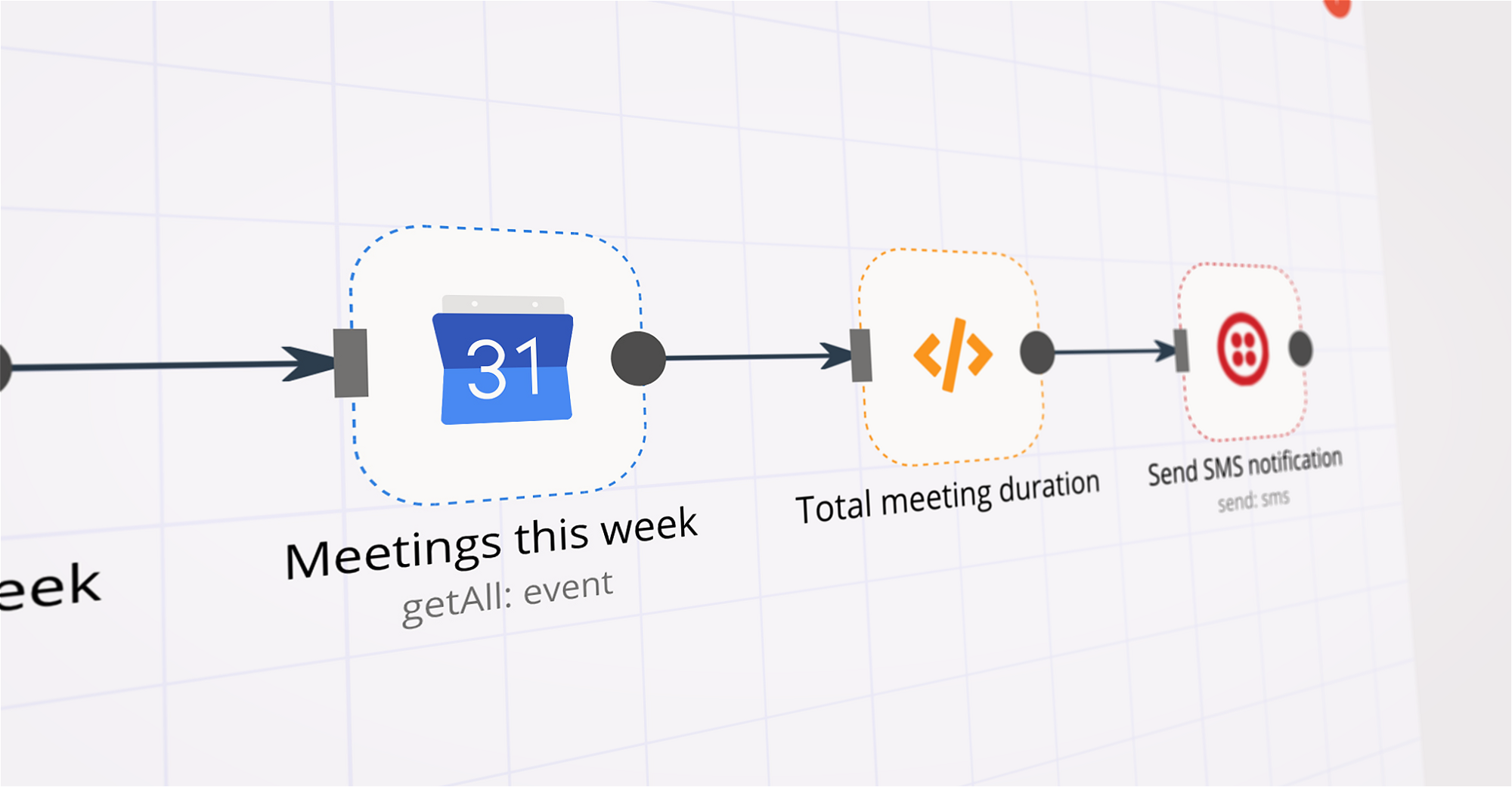Google Calendar and Splunk integration
How to connect Google Calendar and Splunk
Create a new workflow and add the first step
In n8n, click the "Add workflow" button in the Workflows tab to create a new workflow. Add the starting point – a trigger on when your workflow should run: an app event, a schedule, a webhook call, another workflow, an AI chat, or a manual trigger. Sometimes, the HTTP Request node might already serve as your starting point.
Build your own Google Calendar and Splunk integration
Create custom Google Calendar and Splunk workflows by choosing triggers and actions. Nodes come with global operations and settings, as well as app-specific parameters that can be configured. You can also use the HTTP Request node to query data from any app or service with a REST API.
Google Calendar supported actions
Availability
If a time-slot is available in a calendar
Create
Add a event to calendar
Delete
Delete an event
Get
Retrieve an event
Get Many
Retrieve many events from a calendar
Update
Update an event
Splunk supported actions
Get Fired Alerts
Retrieve a fired alerts report
Get Metrics
Retrieve metrics
Create From Search
Create a search report from a search job
Delete
Delete a search report
Get
Retrieve a search report
Get Many
Retrieve many search reports
Create
Create a search job
Delete
Delete a search job
Get
Retrieve a search job
Get Many
Retrieve many search jobs
Get Result
Get the result of a search job
Create
Create an user
Delete
Delete an user
Get
Retrieve an user
Get Many
Retrieve many users
Update
Update an user
Google Calendar and Splunk integration details
Google Calendar
Google Calendar is a time-management and calendar service created by Google Workspace. It helps you schedule and organize events and meetings, send notifications, and synchronize with your team. It is widely used by both individuals and organizations.
Related categories
Google Calendar and Splunk integration tutorials

15 Google apps you can combine and automate to increase productivity
Learn how to combine and automate popular Google apps for more productivity in the workplace.

Tracking time spent in meetings with Google Calendar, Twilio, and n8n
Learn about automating the process of calculating your meeting time every week to give you a better idea on how your week is spent.
FAQ
Can Google Calendar connect with Splunk?
Can I use Google Calendar’s API with n8n?
Can I use Splunk’s API with n8n?
Is n8n secure for integrating Google Calendar and Splunk?
How to get started with Google Calendar and Splunk integration in n8n.io?
Need help setting up your Google Calendar and Splunk integration?
Discover our latest community's recommendations and join the discussions about Google Calendar and Splunk integration.
Looking to integrate Google Calendar and Splunk in your company?
The world's most popular workflow automation platform for technical teams including
Why use n8n to integrate Google Calendar with Splunk
Build complex workflows, really fast



